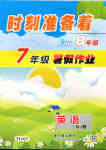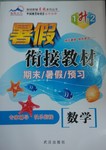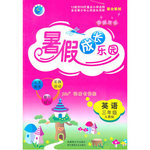题目内容
Ask someone what they have done to help the environment recently and they will almost mention recycling, which is the process (过程) of treating used things, such as paper or steel so that they can be used again. Recycling in the home is very important of course. However, being forced to recycle often means we already have more things than we need. We are now dealing with the results of that over-consumption in the possible greenest way, but it would be far better if we did not bring so many things home in the first place.
Here is an example. In the UK, the total of packaging increased by 12% between 1999 and 2005. It now makes up a third of a household’s waste. In many supermarkets, foods are packaged twice with plastic and cardboard.
Too much packaging causes serious environmental problems. The UK is running out of different kinds of ways for dealing with this unnecessary waste. If such packaging is burnt, it gives off greenhouse gases which go on to cause the greenhouse effect (效果). Recycling helps, but the process itself uses energy. The best way of avoiding this problem is to stop producing such unnecessary things in the first place. Food waste is another serious problem, too. Too many supermarkets encourage customers (消费者) to buy more than they need. They seldom encourage customers to reuse their plastic bags, for example. However, a few of them are coming round to the idea that this cannot continue.
But this is not just about supermarkets. It is about all of us. We have learned to connect packaging with quality (质量). We have learned to think that something unpackaged is of poor quality. Is it true for all the products? In fact, more and more companies realized the importance of protecting the environment. They try to package what really should be packaged, including products in good quality.
As more of us recycle, we are beginning to realize how many unnecessary things are being collected. We need to face the waste of our daily life. Although many people have taken action to recycle, we have a high mountain to climb.
【小题1】What does the underlined word “over-consumption” mean?
| A.Making the environment green. |
| B.Recycling as much as possible. |
| C.Making more products than necessary. |
| D.Having more things than being needed. |
| A.To show the facts of over-used packaging. |
| B.To talk about the possible greenest ways. |
| C.To teach people how to do recycling at home. |
| D.To express worries about environmental problems. |
| A.Unpackaged products are of bad quality. |
| B.Other products are better packaged than food. |
| C.We can’t always connect quality with packaging. |
| D.Supermarkets should care more about packaging. |
| A.Supermarkets should recycle first. |
| B.Packaging causes serious problems. |
| C.Needless things are mostly recycled. |
| D.Recycling should be done in the first place. |
【小题1】D
【小题2】A
【小题3】C
【小题4】D
解析【小题1】词义理解推断题,根据文中语句“However, being forced to recycle often means we already have more things than we need. We are now dealing with the results of that over-consumption in the possible greenest way,”理解可知。
【小题2】理解归纳题,根据文中第二自然段的语句理解可知。
【小题3】理解归纳题,根据文中第四自然段的语句理解可知。
【小题4】理解归纳题,根据文中语句“We need to face the waste of our daily life. Although many people have taken action to recycle, we have a high mountain to climb.”理解可知。

 时刻准备着暑假作业原子能出版社系列答案
时刻准备着暑假作业原子能出版社系列答案 暑假衔接教材期末暑假预习武汉出版社系列答案
暑假衔接教材期末暑假预习武汉出版社系列答案 假期作业暑假成长乐园新疆青少年出版社系列答案
假期作业暑假成长乐园新疆青少年出版社系列答案Do you have a dictionary? I think almost everyone has one.But ,how often do you use a dictionary? I don't believe that everyone makes good use of it.You may come across lots of new words in your study and you will ask someone for the answers. But if you have a dictionary ,
please don't let it sleep.You should make better use of it .It can tell you not only the meaning of the words but also the use of them.What's more, it can tell you how to use them.
It is true that dictionaries are very useful and important to us.They are like silent teachers. When you have a question, you can turn to them.They will give you the right answer.They are also like a trusted friend and stay with you forever. You can learn a lot from them .
Don't be lazy. Don't let your dictionary sleep any more. You will find it is a new world if you walk to it.
【小题1】Does everyone make good use of the dictionary?
| A.No,they aren't. | B.No,they don't. | C.Yes,they do. | D.I don't know. |
| A.He will look them up in the dictionary. |
| B.He will ask his parents. |
| C.He will ask someone for the answers. |
| D.I don't know. |
A. The meaning of the words. B. The use of the words.
C. How to use the words. D. A,B and C.
【小题4】What are dictionaries like according to the passage?
| A.They are like silent teachers and trusted friends. | B.They are of medium height. |
| C.They are very cute. | D.They are very beautiful. |
| A.We should let the dictionary sleep. | B.Dictionaries are like our mothers. |
| C.Dictionaries are very useful to us. | D.We can see the film in the dictionary. |
In my life, I have received many gifts from my mother. The most important was my life. However, there’s another special gift I will never forget.
When I grew up, I left home and got a job in South America. One day , a call came from my brother, “Something is wrong with Mom. She’s forgetful (健忘). She thinks we’re hiding (藏) you from her…”
I got back home at once. It was clear that she would not be able to stay in the house alone.
For nearly 4 years I stayed with my mother and we had fun. We even planted some vegetables together in the garden. It was not easy for me. I had to stop working. When I had to leave , I had to ask someone to look after her or drive her to my brother’s.
When it became clear that she was near the end, family memebers were called to come to say their good byes. For 3 weeks my sister and I just sat with Mom, took long walks and spent some real time with each other. My sister and I were both with Mom when she was passing away (去世), holding her hands and telling her how much we loved her. At the end of life, my mother gave me the gift of time with my sister in a way we would never have given ourselves.
【小题1】The writer knew there was something wrong with her mother________.
| A.by giving her mother a call | B.when she stayed with her mother |
| C.from her brother’s call | D.by talking with her doctor |
| A.working hard | B.planning vegetables |
| C.building a garden | D.looking after her mother |
| A.to say good bye to Mother |
| B.to take care fo Mother |
| C.to help Mother do some housework |
| D.to have a family get -together |
| A.the writer didn’t get on well with her sister |
| B.the writer was kind and loved her mother |
| C.the writer’s mother didn’t like her sister |
| D.the wrter’s brother hid her from her mother |
| A.The most important gift | B.A special gift |
| C.A happy family | D.My dear mother |
A taboo(忌讳,禁忌) is a social action that is not allowed. Every culture in the world has its own taboos. The breaking of a taboo sometimes makes people feel uncomfortable. I learned this through my own experience.
Last weekend, Wang Lin and I showed two foreigners around our city. Mr Singh was from India and Mr. White from USA. When I held out my left hand to shake hands with him, Mr. Singh seemed to be unhappy. Mr. White, however, was quite casual. He said hello to me with a big smile and a wave of his hand.
In the evening, we stopped at a restaurant for dinner. I noticed that Mr. Singh didn’t touch the beef and Mr. White seemed not to like chickens’ claws. During the meal, Wang Lin said sorry to Mr. Singh and continued to explain that we didn’t know it was a taboo in India to shake one’s left hand. Mr. Singh explained that since oxen are sacred(神圣的) in India, people don’t eat beef there. Mr. White joined in and said that it was not usual in the states for people to eat chickens’ claws. He went on to say that Americans don’ t usually get into each other’ s personal space. Marriage, job and age are their taboos. Isn’ t it a good lesson to remember?
|
Main idea |
The taboos in every country are ____1._____. People sometimes feel ____2.____ if one breaks a taboo. |
|
|
Facts |
In India |
Indians don’ t eat ____ 3.___because they think oxen are sacred. It’ s 4. to shake one’ s left hand. |
|
In the USA |
Although it’ s not a taboo, Americans 5. eat chickens’ claws |
|
|
Americans don’ t usually get into each other’ s personal space. For example, they usually don’t ask someone else’s 6. , job or 7. . |
||
|
Conclusion |
If you pay 8. to taboos, you can get on 9. with the people with different 10. . |